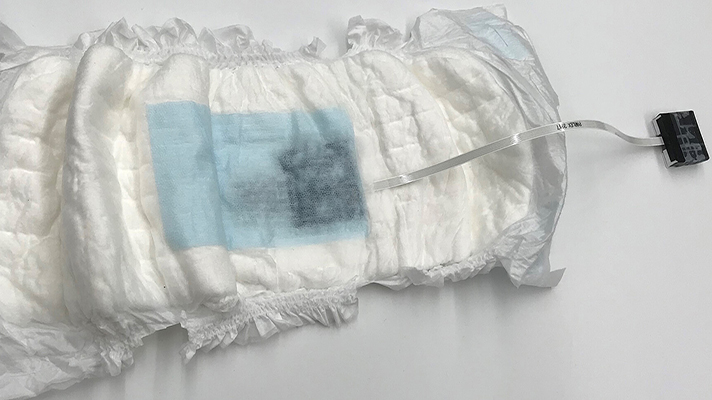
Smart diaper detects UTIs. Purdue University researchers have developed a disposable, urinary tract infection-detecting sensor that is self-powered and can be embedded into diaper. The autonomous sensor activates upon exposure to urine, checks for compounds often associated with the infection and then wirelessly transmits the results to a smartphone if positive.
“We have at least two big advantages here with our device,” Babak Ziaie, a professor of electrical and computer engineering at Purdue that worked on the device, said in a statement. “Because it’s autonomous, it doesn’t require the patient or caregiver to obtain urine samples, and it can help detect an infection in people who either aren’t able to communicate their symptoms, or they don’t show typical symptoms.”
BYOD may drive healthy activity. Recent research from wellness company Onlife Health and remote monitoring data management firm Validic suggests that a BYOD approach can improve member engagement in wearable- or home device-based wellness programs. Presented at the AHIP Institute & Expo, the data highlighted a 23.7% increase in engagement among new members who connected their device, with program participants who increased their activity levels tied to claims costs nearly $500 lower than those who remained sedentary.
“Offering members a connection to just a single device severely limits the ability of an organization to reach their full population,” Online Health CEO Mark McConnell said in a statement. “By providing access to a broad spectrum of devices via Validic, we’re giving members the freedom to use their preferred device or app. The resulting increase in engagement leads to a deeper understanding of the story of each member’s health, enabling us to offer a most personalized approach that produces sustained behavior change and improved outcomes.”
Talk to me. Olive, maker of a product for automating high-volume healthcare administration tasks and workflows, announced yesterday that it is incorporating Clinc’s conversational AI capabilities into its existing product. According to the companies, the combined offering will be able to handle patient scheduling calls, track down missing information on a claim and other dialogue-based tasks that would normally require a human.
“This added technology helps us expand our breadth of AI by adding cognitive conversation to Olive’s capabilities,” Sean Lane, CEO of Olive, said in a statement. “I envision Olive seamlessly interacting with patients and employees and bringing elevated comprehension into data analysis. We’re excited to be entering a new chapter in building a faster, more efficient, more effective healthcare system — the possibilities are endless.”
Patients, families turning to the web. Patients with bipolar disorder and their family members are increasingly turning to web-based resources to educate themselves about the condition, according to a focus group study recently published in JMIR Mental Health. Based on questionnaires returned by 84 individuals, internet education sources (75%) just narrowly edged out providers (74%) as the most common main sources of bipolar disorder knowledge, with the latter dinged by some respondents on account of the fast pace and excessive volume of information espoused during short encounters.
“Although provider-patient interactions are frequently perceived to be burdened with time constraints, web-based information sources are considered reliable and helpful,” the researchers wrote. “Future research should explore how high-quality websites could be used to empower patients and improve provider-patient interactions with the goal of enhancing shared decision making between patients and providers.”














